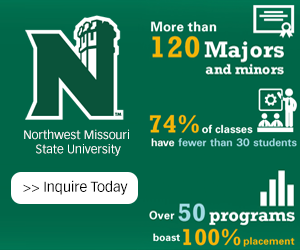So you’ve set your sights on a career in broadcasting and you know that the first step is getting yourself a great education. You’ve checked out your options and decided to go for an undergraduate degree in the field. Here’s a rundown what you can expect and a few of the choices you’ll face.
Picking a Major
International students looking for an undergraduate degree in broadcasting can pursue their goal a few different ways. The most straightforward way is to find and pursue a broadcasting major, though not all schools offer this exact area of study. The other option is to pick a related major – “broadcast journalism,” “radio and television,” etc. – and tailor the curriculum to what you want to learn in the field. You may also find that schools may offer their undergraduate degree in broadcasting as a B.A. (Bachelor of Arts), a B.S. (Bachelor of Science), or even both. You don’t particularly have to worry about this distinction UNLESS your chosen school offers the broadcasting major in both formats. In this case the B.A. curriculum will usually encourage a broader education with more time for other studies of your choice while the B.S. curriculum will focus more narrowly on the chosen major – in this case, broadcasting.
Coursework
Whichever degree they choose, international students pursuing an undergraduate degree in broadcasting can look forward to getting their feet wet right away in freshman year. Most broadcasting, broadcast journalism, and related-subject majors kick off with a general media theory course named something like “Introduction to Mass Media” sometime in the student’s first year, if not their very first semester. Many programs also feature other academically-oriented broadcasting courses – such as media theory, ethics, or history – right off the bat in the curriculum. And while most freshman level broadcasting classes take place in the lecture halls, you may also be exposed to some early hands-on classwork in basic newswriting, on-air reporting, and production techniques.
Freshman Year
Barring rare exceptions, a broadcasting major won’t really pick up until later years, leaving students to focus on their general requirements in their first year. Passing these courses off as unimportant is a big mistake! Since any type of information can be broadcast, international students looking into broadcasting as a career can and should be well-rounded and have interests and passions outside of just broadcasting. This is essential for a reporter, anchor, or writer, who must frequently cover stories on diverse topics like politics, science and technology, the arts, and more. Even if you plan on working behind the scenes, a solid general education is vital to understanding the world around you and how best to broadcast to it! For your school’s general education requirements, find classes with topics that interest you and commit yourself to them
Sophomore Year
Sophomore year is when an undergraduate degree in broadcasting kicks off in earnest. All intro courses to the specific skills mentioned above should be covered. Important topics that are covered at multiple class levels will begin to come up for the second time in the form of courses like Advanced Newswriting or TV Production II. Sophomore year also represents the first opportunity most broadcasting students will have to delve into the technical side of broadcasting, making it a particularly exciting year for those interesting in editing, camerawork, or sound. If that technical side doesn’t sound like your thing, don’t worry – the courses will still be basic enough to represent only the general understanding that everyone in the broadcasting major should have of those skills.
Junior and Senior Year
Junior and senior years of an undergraduate broadcasting program generally offer two big changes. First, with general requirements taken care of, students are free to take more in-major electives in order to hone their knowledge in a particular aspect of broadcasting. This is where technically-oriented students will really advance their skills, where aspiring newswriters will learn the ins and outs of finding and shaping stories, and so on. The second major change in the upper-level years is a required internship. A common requirement of broadcasting programs is an internship throughout a student’s junior and senior years and will give the student their first chance to put all their hard work to practice in a real broadcast setting.
The undergraduate broadcasting curriculum, from the general-requirement-heavy first year all the way to the final internship, is a rigorous but rewarding one, and provides students with a great start to their chosen career in the broadcasting field.

